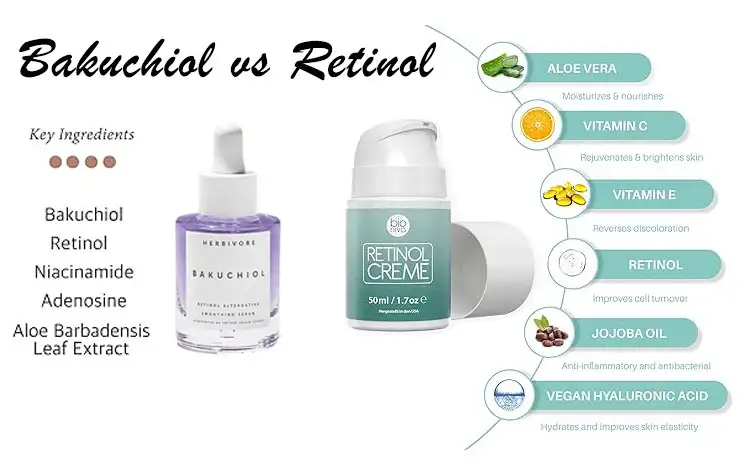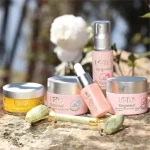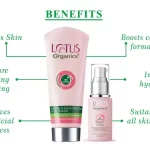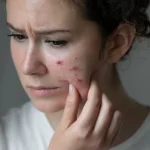Ageless beauty begins with a carefully curated skincare regimen tailored to meet your skin’s unique needs. Among the myriad of anti-aging ingredients, Retinol has reigned supreme for decades. But a new botanical contender, Bakuchiol, is making a name for itself as a gentler, natural alternative. This article aims to explore these powerhouses in-depth, comparing their benefits, potential side effects, ideal usage, and synergistic ingredients to help you navigate your path to ageless beauty.
The Retinol Rundown
Retinol, a derivative of vitamin A, has proven its efficacy as an anti-aging wonder. It accelerates cell turnover, prompts collagen and elastin production, and diminishes the appearance of fine lines, wrinkles, and uneven skin tone.
However, while Retinol offers impressive benefits, it does present potential side effects. Some users may experience dryness, irritation, or even an initial worsening of wrinkles and fine lines—commonly referred to as “Retinol uglies”. Furthermore, Retinol can cause sun sensitivity, necessitating diligent use of sunscreen during the day.
When using Retinol, be cautious with ingredients such as alpha and beta hydroxy acids (AHAs/BHAs) and vitamin C, as these can increase irritation. Instead, pair Retinol with moisturizing ingredients like hyaluronic acid or ceramides to counteract dryness. As Retinol can increase skin sensitivity, it is best used as part of your nighttime regimen.
Breaking Down Bakuchiol
Bakuchiol, extracted from the seeds and leaves of the babchi plant, is a natural ingredient offering a gentler alternative to Retinol. It carries similar benefits, including boosting collagen production, accelerating cell turnover, and reducing signs of aging.
The beauty of Bakuchiol lies in its gentleness. Unlike Retinol, it doesn’t cause irritation, dryness, or photosensitivity, making it ideal for sensitive skin or daytime use. Furthermore, Bakuchiol plays well with other ingredients. It can be combined with vitamin C for added brightening effects or with AHAs/BHAs for enhanced exfoliation without the risk of over-irritation.
Retinol vs Bakuchiol: The Verdict
Both Retinol and Bakuchiol pack a punch in the fight against aging. While Retinol has a more extensive research-backed history, recent studies show that Bakuchiol offers similar results with fewer side effects.
Sensitive skin types or those new to anti-aging products may find Bakuchiol more tolerable. Its lack of photosensitivity makes it a versatile choice for both day and night routines. Retinol, on the other hand, is an excellent pick for resilient skin types seeking a powerful anti-aging weapon, albeit with the need for cautious daytime use and a robust sunscreen regimen.
Conclusion: Making the Right Choice for Your Skin
Choosing between Bakuchiol and Retinol comes down to your skin’s individual needs, tolerance, and your personal skincare philosophy. For tried-and-tested potency and transformative results, Retinol could be your holy grail, provided you’re committed to proper sun protection and cautious pairing with other ingredients. However, if you prefer a gentle, plant-derived alternative with no risk of sun sensitivity, Bakuchiol is a brilliant contender.
Remember, the journey to ageless beauty is a personal one. Every skin type is unique, and what works best for you may not work for someone else. Therefore, when introducing new active ingredients to your routine, always conduct a patch test or consult with a skincare professional. Whether you choose Bakuchiol, Retinol, or a combination of both, radiant, ageless beauty is within your reach.
Tips for Using Bakuchiol
-
Consistency is Key
Just like any other skincare product, Bakuchiol requires consistent use for the best results. Try to incorporate it into your daily routine, applying once or twice a day. It can take several weeks to notice visible changes, so be patient!
-
Pair It Up
Bakuchiol plays well with other skincare ingredients. Consider combining it with a hydrating serum or cream for an extra moisture boost. You can also mix it with Vitamin C for amplified brightening effects, or pair it with your favorite SPF for enhanced daytime protection.
-
Know When to Apply
While Bakuchiol doesn’t make your skin sun-sensitive, it’s best applied after cleansing and toning, but before your moisturizer. This allows it to absorb fully and work its magic from deep within your skin.
-
Use the Right Amount
You don’t need a lot of Bakuchiol for it to be effective. A pea-sized amount is usually enough for the entire face. Remember, more isn’t always better in skincare. Using too much can lead to product waste without any additional benefits.
-
Listen to Your Skin
Everyone’s skin is unique. While Bakuchiol is generally gentle and suitable for all skin types, always listen to your skin. If you notice any sensitivity or adverse reaction, stop use and consult a skincare professional. Always remember to do a patch test when introducing a new product to your routine, even one as gentle as Bakuchiol.









